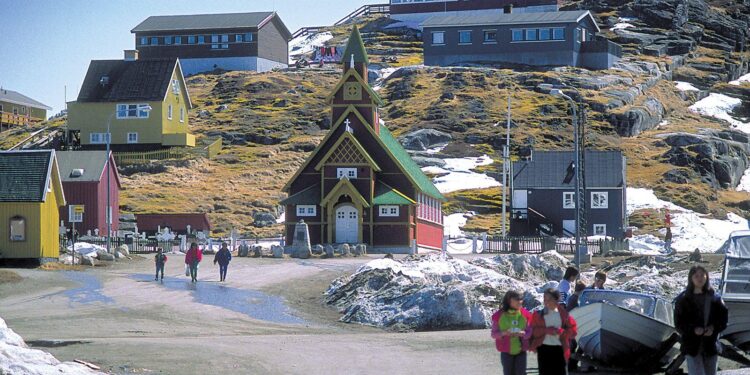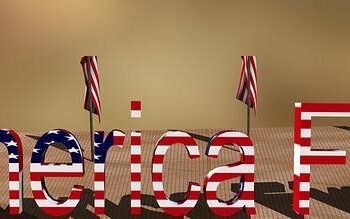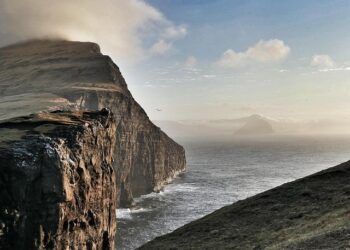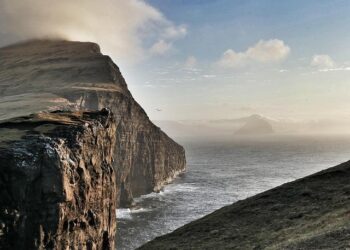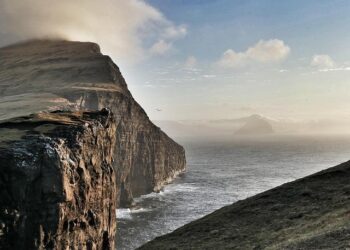Transforming Geopolitical Dynamics in the Arctic and North Atlantic: Greenland and the Faroe Islands at the Forefront
In an era marked by swift geopolitical transformations, the Arctic region and its neighboring North Atlantic territories have emerged as critical arenas for global strategic rivalry. The spotlight on Greenland has intensified following renewed U.S. interest, notably sparked by former President Donald TrumpŌĆÖs controversial proposal to purchase this resource-rich island. Concurrently, Russia is deepening its engagement with the Faroe IslandsŌĆöan autonomous Danish archipelagoŌĆöfueling speculation about MoscowŌĆÖs ambitions to influence local independence movements and expand its presence in Northern Europe. This analysis delves into these evolving developments, assessing their impact on sovereignty debates, regional security frameworks, and international diplomatic relations.
GreenlandŌĆÖs Rising Importance Amid Intensifying Global Competition
The United StatesŌĆÖ reconsideration of Greenland underscores a broader strategic recalibration toward securing influence in a rapidly changing Arctic landscape. While TrumpŌĆÖs initial acquisition proposal was widely dismissed as unconventional, it now symbolizes Washington’s growing desire to assert dominance over this pivotal territory.
Key drivers behind this renewed focus include:
- Vast Mineral Wealth: Recent explorations reveal that Greenland contains significant deposits of rare earth elements vital for electronics manufacturing alongside untapped oil reserves estimated to be among the largest globally.
- Strategic Military Positioning: Situated near crucial Arctic sea lanes and proximate to Russian military bases on the Kola Peninsula, control over Greenland offers unparalleled advantages for surveillance and defense operations.
- The Impact of Climate Change: Accelerated glacial melting is opening new maritime corridors such as the Northwest Passage; studies from 2023 indicate these routes could cut shipping times between Asia and Europe by nearly 40%, reshaping global trade logistics.
This intersection of natural riches with geostrategic value places Greenland at a nexus where NATO-led Western interests confront expanding Chinese investments through entities like China National Offshore Oil Corporation (CNOOC) and Russia’s ongoing military enhancements along its northern borders.
| Region | Status | Main Geopolitical Stakes |
|---|---|---|
| Greenland | Danish Autonomous Territory since 2009 with Self-Government Powers | NATO/U.S.: Military foothold; resource exploitation; counterbalance against Chinese & Russian expansionism |
| Faroe Islands | Danish Autonomous Territory with Legislative Authority since 1948 | Moscow: Political leverage expansion; nurturing separatist tendencies; securing naval footholds |
The Faroe Islands: A Strategic Chessboard for Russian Influence Amid Growing Autonomy Movements?
Nestled between Iceland and Norway, the Faroe Islands hold significant geopolitical weight due to their location along key North Atlantic maritime routes. Historically integrated within Denmark’s realm since Viking-era ties, recent decades have witnessed rising Faroese nationalism advocating enhanced self-rule or full independence.
Moscow appears intent on exploiting these aspirations through targeted economic collaborationsŌĆöparticularly in fisheries which constitute approximately 90% of Faroese exportsŌĆöand cultural diplomacy designed to circumvent Danish authority while fostering pro-Russian sentiment locally. Experts caution that such maneuvers may embolden separatist groups across EuropeŌĆöfrom Corsica in France to Northern ItalyŌĆöpotentially unsettling NATO cohesion amid already strained East-West relations.
- < strong >Potential Ramifications Include:< / strong >
- An increased NATO military footprint responding defensively;< / li >
- Heightened diplomatic tensions between Denmark and Russia;< / li >
- New trade dynamics influencing Northern European maritime commerce.< / li >
A Collaborative Framework for Managing Arctic-North Atlantic Challenges┬Āand Opportunities
The complex interplay involving GreenlandŌĆÖs resource potential alongside RussiaŌĆÖs strategic outreach towards the Faroes necessitates policies rooted in multilateral cooperation rather than zero-sum competition. Incorporating indigenous voices alongside state actors can foster sustainable governance models addressing shared concerns such as environmental degradation accelerated by climate change effects on fragile polar ecosystems.
< strong >Recommended Strategies Encompass:< / strong >
- < b >Joint Environmental Research Initiatives: Coordinated scientific programs focusing on sustainable extraction practices can help mitigate ecological damage linked with increased industrial activity due to thawing ice caps.
- < b >Strengthened Security Alliances: Enhanced intelligence sharing combined with multinational defense exercises will deter unilateral provocations while reassuring smaller states vulnerable amid great power rivalries.
- < b>Cultural Exchange & Indigenous Engagement: Promoting educational partnerships involving native communities fosters cross-border social cohesion respecting traditional knowledge systems.
A Vision Toward Stability Amid Escalating Polar Power Struggles
The unfolding scenarios surrounding both Greenland & The Faroe Islands —a microcosm reflecting wider global contestations—shed light on how sovereignty disputes are increasingly intertwined with environmental realities reshaping geopolitics.
As American interest resurges regarding Greenland’s future trajectory,Moscow’s engagement with Faroese autonomy movements signals a multipolar contest influencing not only regional but also broader international alignments.< p >According to recent assessments from The Arctic Institute (2024), nearly one-third of undiscovered natural gas reserves worldwide lie beneath polar regions,highlighting why stakes remain exceptionally high.
< p >“”Navigating these complexities demands vigilant policymaking globally,””—says Dr. Elena Markova , senior Eurasian geopolitics analyst.&ldquo ;Only through inclusive dialogue coupled with transparent collaboration,&rdquo ; she emphasizes , &ldquo ;can we reduce conflict risks while capitalizing on opportunities presented by this swiftly evolving frontier .&rdquo ;< / p >
- < b >Joint Environmental Research Initiatives: Coordinated scientific programs focusing on sustainable extraction practices can help mitigate ecological damage linked with increased industrial activity due to thawing ice caps.


